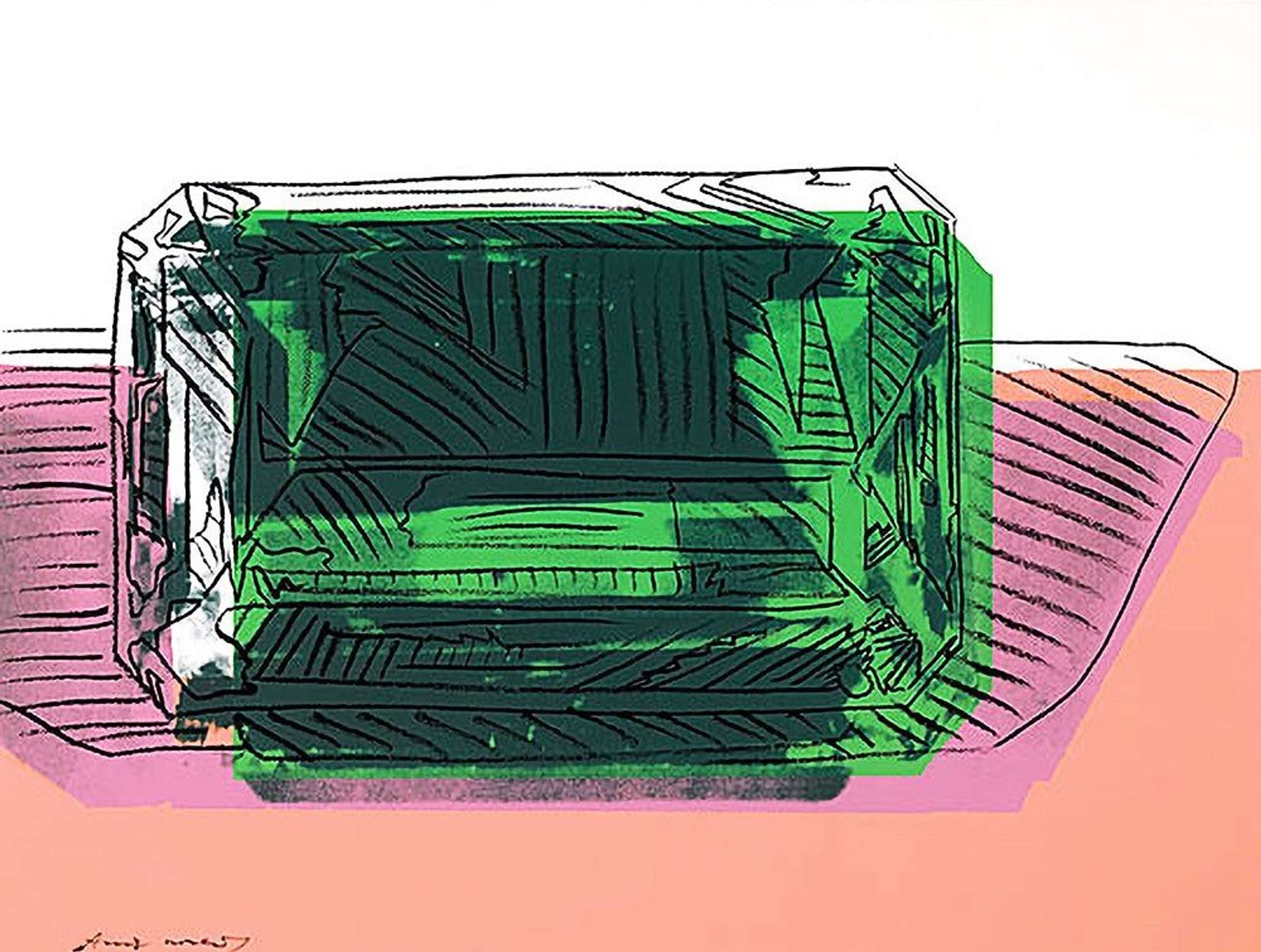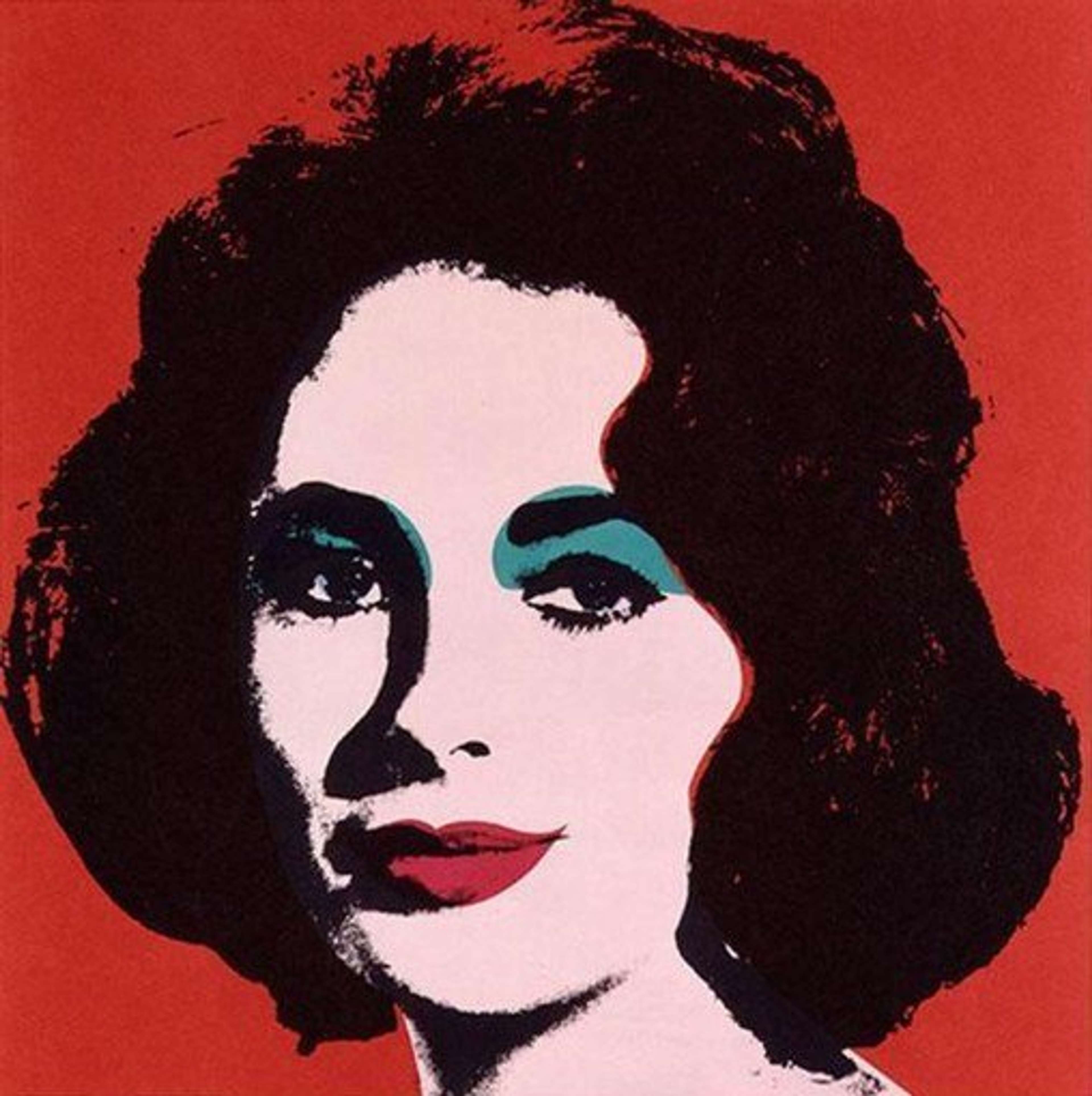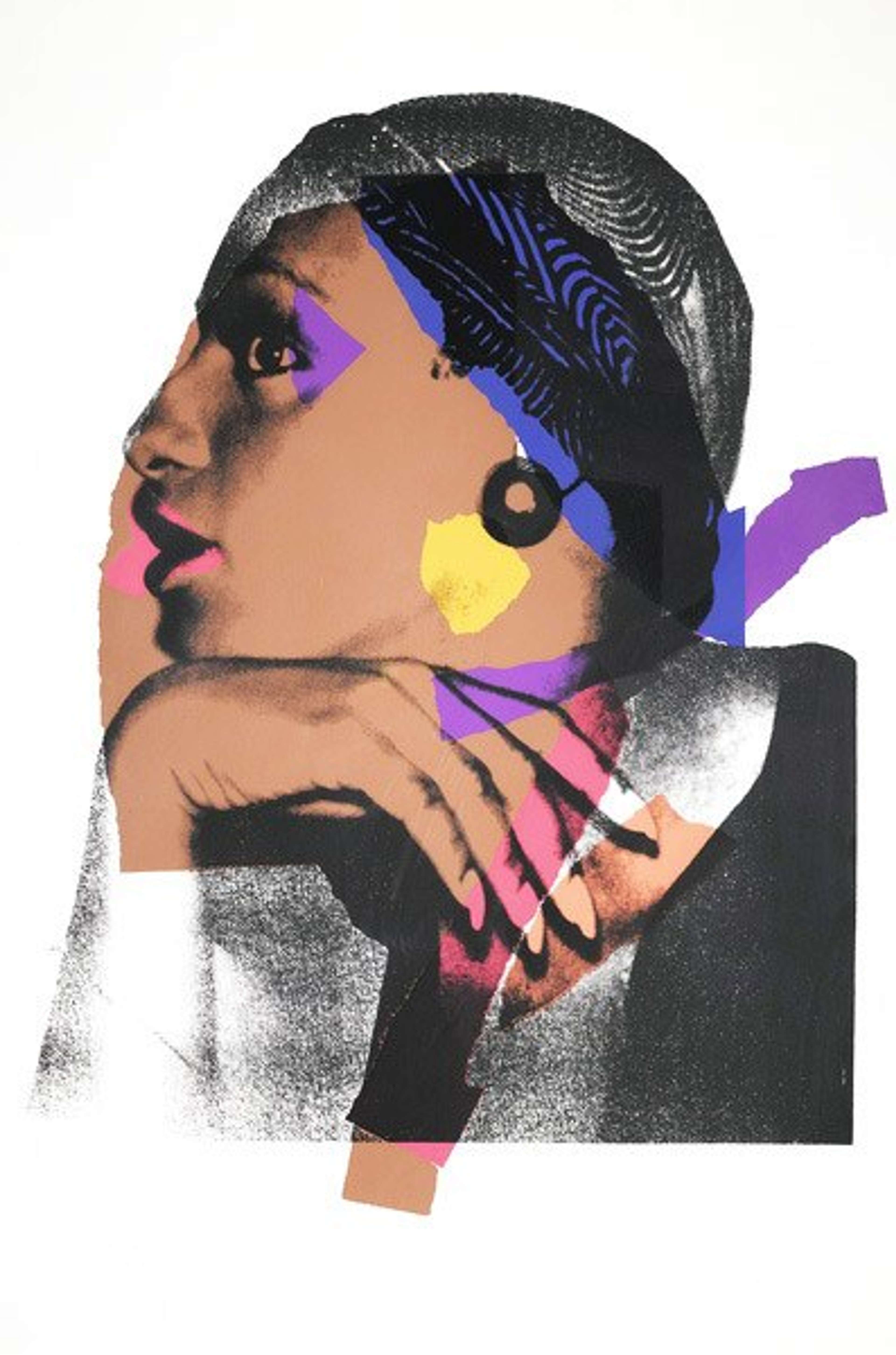 Gems (F. & S. II.86) © Andy Warhol 1978
Gems (F. & S. II.86) © Andy Warhol 1978
Interested in buying or selling
Andy Warhol?

Andy Warhol
493 works
Andy Warhol's Gems print series is underscored by glitz and glamour. The screen prints capture the kaleidoscopic quality of three precious stones, and allude to the well-to-do individuals who might wear them.
The series depicts three precious stones.
 Gems (F. & S. II.88) © Andy Warhol 1978
Gems (F. & S. II.88) © Andy Warhol 1978This small print series is formed of four screen prints, each capturing a still life arrangement of precious stones. Across the four prints in the series, Warhol depicted rubies, diamonds, and emeralds. Through the many layers of ink applied during the printing process, Warhol reveals the depth of these luxe stones with an uncharacteristic sense of realism.
Warhol had a secret jewellery collection.
 The Shadow (unique) © Andy Warhol 1981
The Shadow (unique) © Andy Warhol 1981Though Warhol was barely ever seen sporting jewellery, he had an extensive collection which was only fully discovered after his death. Among his selection of sparkles were hoards of Cartier, Tiffany, almost 100 watches from the likes of Patek Philippe and Rolex, and countless loose gems. It was perhaps his extensive collection of loose stones - with varying sizes of diamonds, sapphires, and emeralds - which inspired this print series. Warhol might not have worn his gems, but he certainly depicted them with the sensitivity of an avid collector.
The series pronounces the indelible ties between wealth and beauty.
 Gems (F. & S. II.87) © Andy Warhol 1978
Gems (F. & S. II.87) © Andy Warhol 1978In Warhol's world, wealth and beauty were practically synonymous. Warhol only surrounded himself with ’beautiful’ people who all came from a league of celebrities and icons. Though the Gems series only depicts the material objects, we can infer the class of their wearers. Indeed, money might not buy you happiness, but it could buy you beauty in Warhol's eyes.
The series is characteristic of Warhol's later style.
 Cantaloupes I (F. & S. II.201) © Andy Warhol 1979
Cantaloupes I (F. & S. II.201) © Andy Warhol 1979With his considered use of graphic line and blocks of collage-like colour, the Gems series is typical of Warhol's style towards the end of his career. Also, unlike his earlier oeuvre which concentrated primarily on celebrity portraiture, his focus in the 1980s shifted to still life and objects. The series presents the maturity of Warhol's style, and his continuous experimentation with the medium of screen printing.
Gems symbolises the surface beauty of the celebrity.
 Gems (F. & S. II.86) © Andy Warhol 1978
Gems (F. & S. II.86) © Andy Warhol 1978One thing that Warhol's Pop Art proves is that the celebrity's image is just as important as their talents. Most of the celebrities that Warhol depicted were stars of the screen, whose appearance was an essential part of their role as entertainers. Alongside hair, makeup and costume, gems like those depicted in this series were important components of the celebrity's star-studded appearance.
Warhol's fascination with rubies was bound to his fascination with Liz Taylor.
 Liz © Andy Warhol 1964
Liz © Andy Warhol 1964Though Warhol was fascinated with all that glittered, rubies held a particularly special place in his repertoire. His particular affinity to rubies was owed, in part, to his enduring love of Liz Taylor. Taylor herself had an enviable collection of rubies, which broke auction sale records at Christie's, selling for some $4.2 million.
The series reveals Warhol's fascination with self-fashioning.
 Ladies And Gentlemen (F. & S. II.136) © Andy Warhol 1975
Ladies And Gentlemen (F. & S. II.136) © Andy Warhol 1975Whether he focused on shoes or gems, Warhol always took interest in the material props used to fashion the self. In all of Warhol's portraits, the clothes and accessories worn by his sitters are essential to their character. Though the Gems series focuses on the material objects alone, they allude to the playful act of dressing up.
Warhol finished his Gems prints by hand.
 Gems (F. & S. II.89) © Andy Warhol 1978
Gems (F. & S. II.89) © Andy Warhol 1978Warhol built depth in his Gems series through a repeated process of layering; overlapping geometric blocks of colour to give a prismatic appeal. After establishing this initial screen print, Warhol finished each print by hand, drawing over the print with black ink. The effect serves to pronounce the surface texture of the crystals, and reveals Warhol's keen observation of the glitzy objects.
The series manifests Warhol's obsession with wealth and decadence.
 After The Party (F. & S. II.183) © Andy Warhol 1979
After The Party (F. & S. II.183) © Andy Warhol 1979From his choice of subject matter to his friendship circle, Warhol was always occupied with fame and money. The glamorous lifestyle Warhol alludes to in this series is something we see in his other series, notably After The Party and Dollar Sign.
Gems are a status symbol in Warhol's oeuvre.
 Queen Elizabeth II (F. & S. II.334) © Andy Warhol 1985
Queen Elizabeth II (F. & S. II.334) © Andy Warhol 1985The Gems series depicts unset diamonds, rubies and emeralds, and Warhol focuses on their appearance with an almost macro lens. Elsewhere in his oeuvre, set gems are worn by his illustrious celebrities as a status symbol. In his Reigning Queens series, for example, the jewels worn by the queens as earrings, necklaces and crowns are all highlighted as an intrinsic part of their noble appearance.

